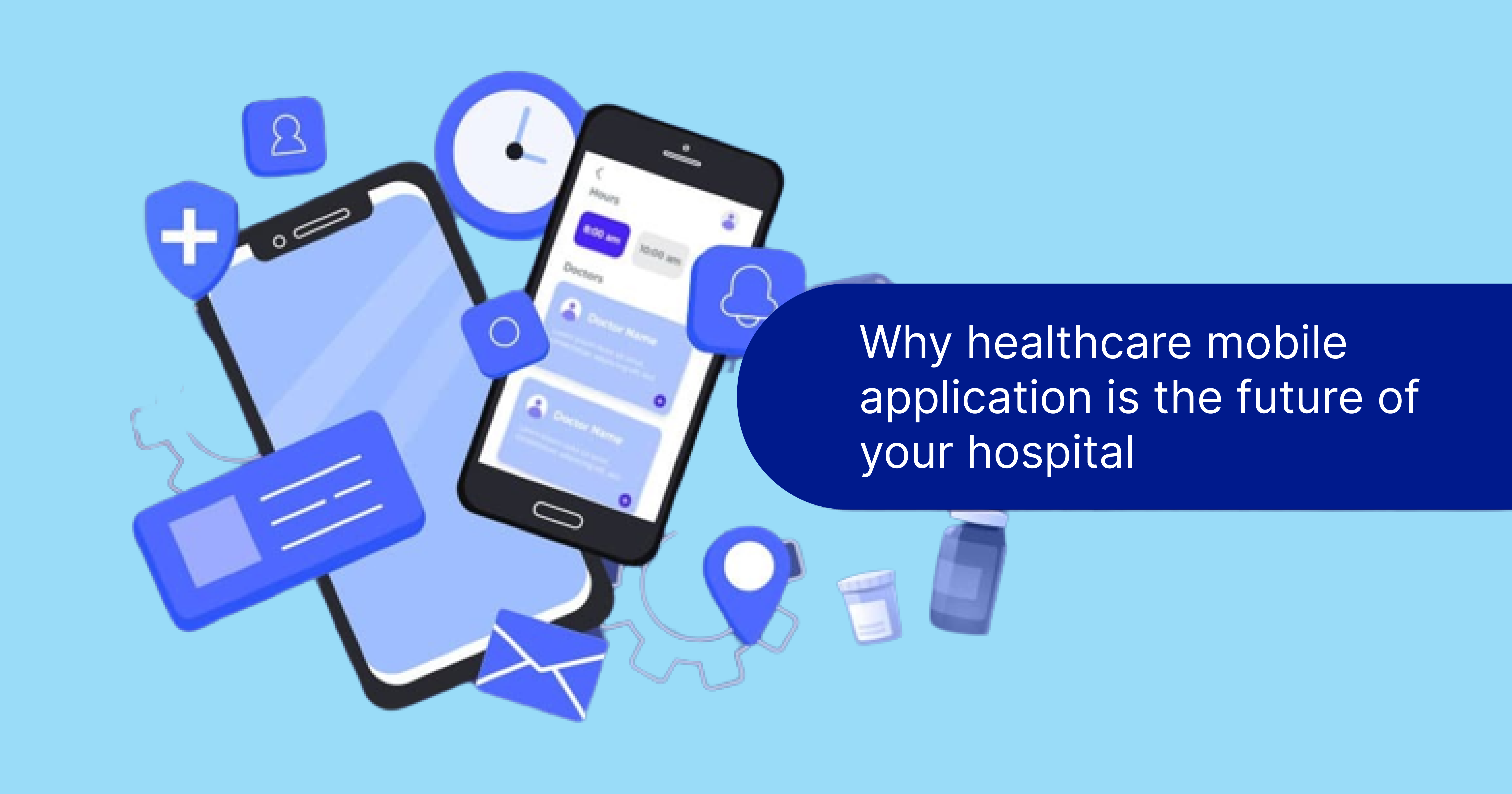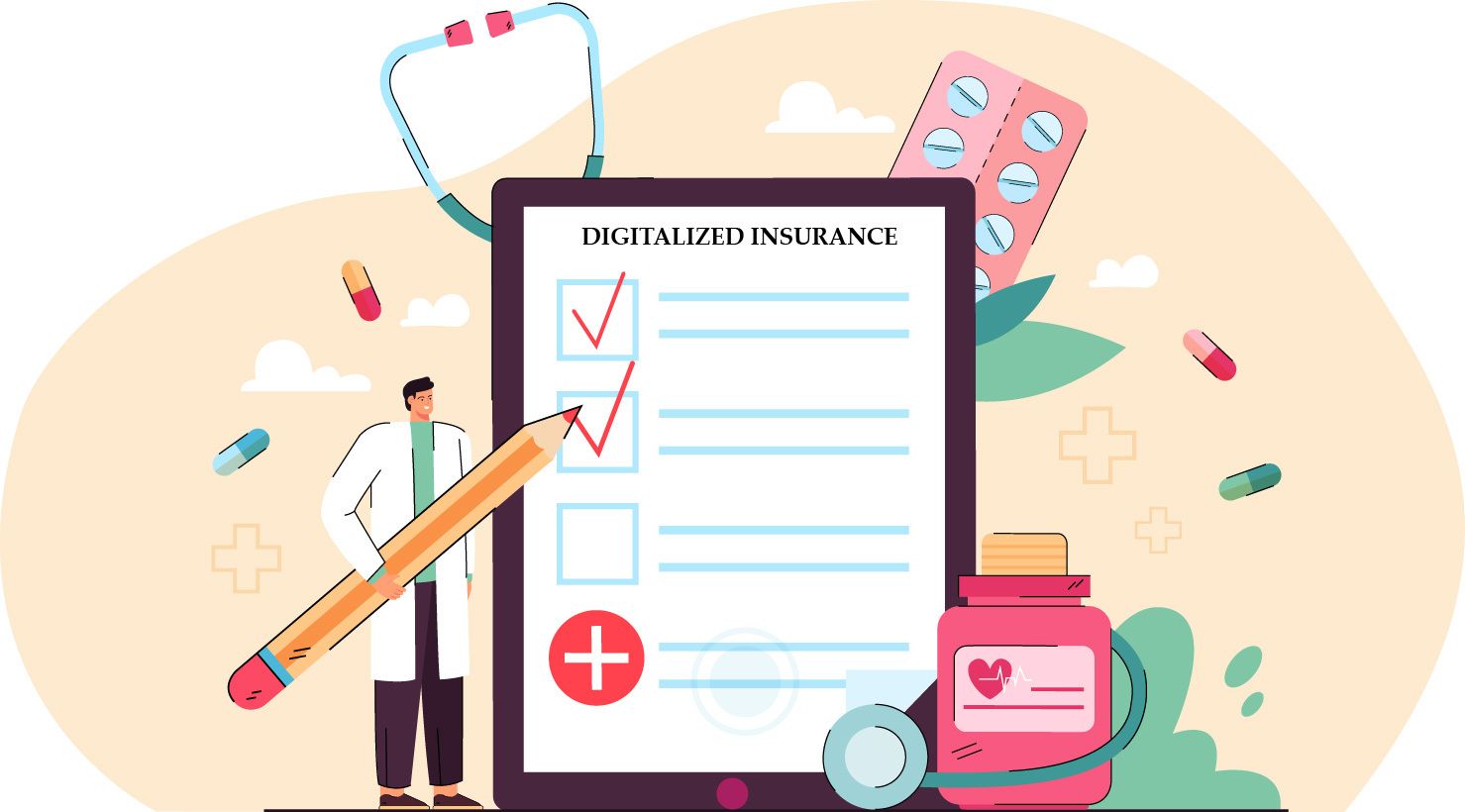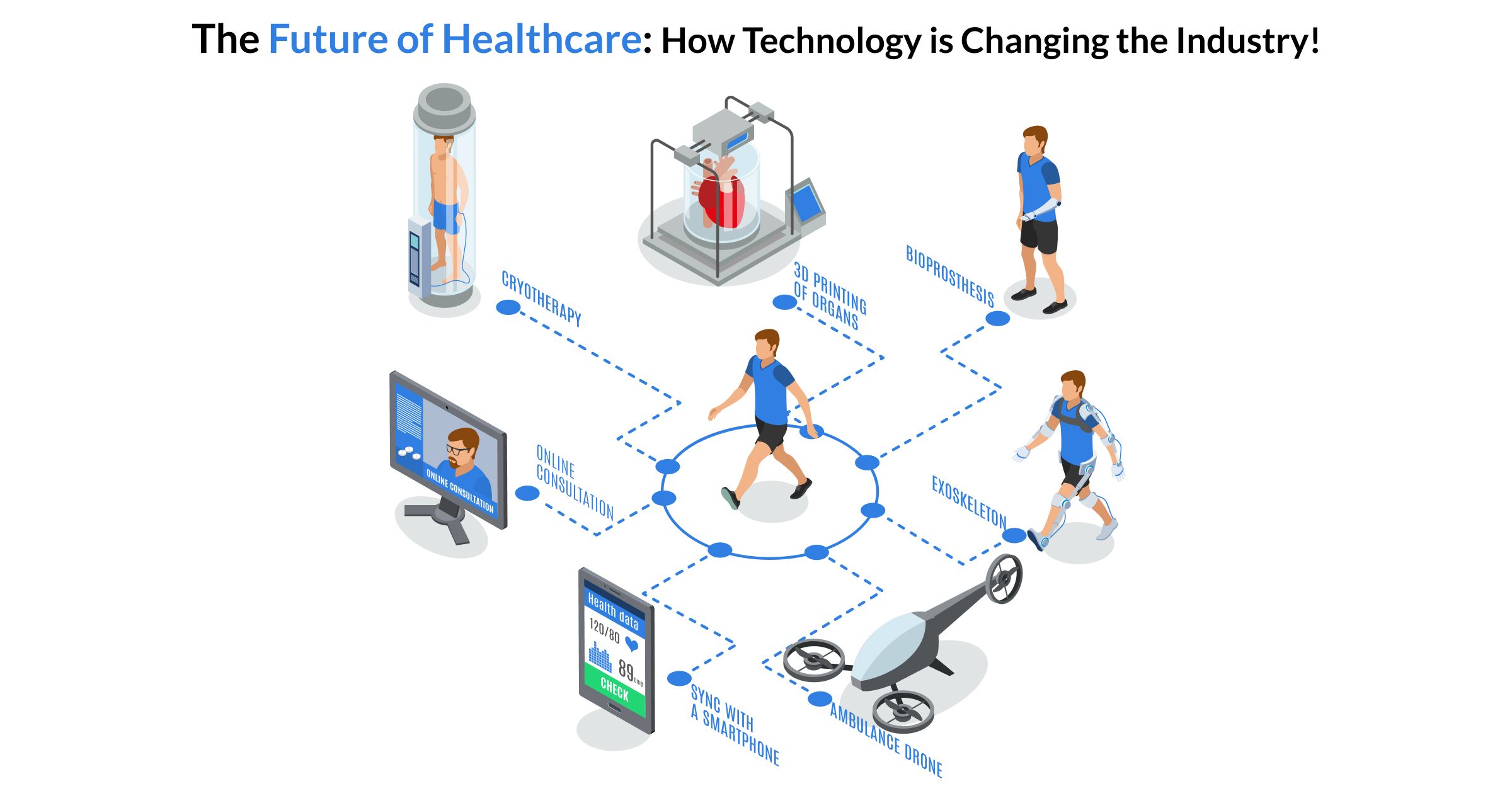Introduction
As technology continues to advance, robots are increasingly being used in various sectors, including healthcare. The use of robotics in healthcare has the potential to improve the accuracy of diagnoses and treatments, reduce medical errors, and enhance patient care.
As technology continues to advance, robots are increasingly being used in various sectors, including healthcare. The use of robotics in healthcare has the potential to improve the accuracy of diagnoses and treatments, reduce medical errors, and enhance patient care.
In this blog post, we will explore the future of robotics in healthcare, including its benefits, challenges, and opportunities.
Benefits of Robotics in the Healthcare Industry
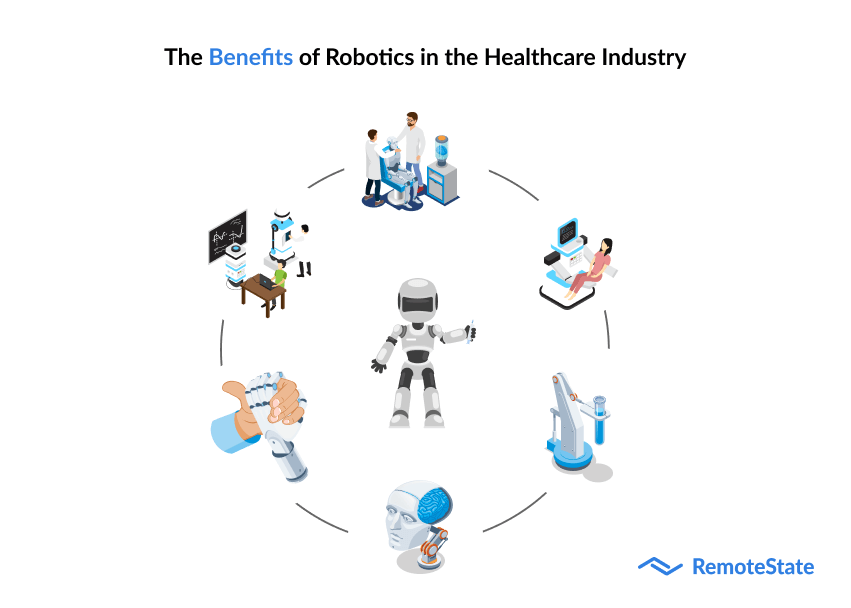
Accurate Diagnoses
One of the primary benefits of robotics in healthcare is its ability to enhance the accuracy of diagnoses. Robots can be programmed to perform various diagnostic tests, such as blood tests, imaging tests, and genetic tests, with greater precision and speed than human doctors. This means that patients can receive faster and more accurate diagnoses, which can lead to better treatment outcomes.
Precise Treatment
Robots can also be used to deliver precise treatments, such as radiation therapy for cancer patients. By using robotics, doctors can ensure that the radiation is delivered precisely to the tumor, minimizing damage to surrounding healthy tissue. This leads to better treatment outcomes and fewer side effects for patients.
Increased Efficiency
The use of robotics in healthcare can also increase efficiency in medical procedures. For example, robots can be used to assist in surgeries, reducing the amount of time that patients spend in the operating room. Additionally, robots can be used to automate tasks such as medication dispensing and patient monitoring, freeing healthcare professionals to focus on more complex tasks.
Improved Patient Care
Finally, robotics in healthcare can lead to improved patient care. By using robots to perform repetitive tasks, healthcare professionals can spend more time interacting with patients and providing personalized care. Additionally, robots can be used to monitor patients remotely, allowing healthcare professionals to provide timely interventions when necessary.
Challenges of Robotics in the Healthcare Industry
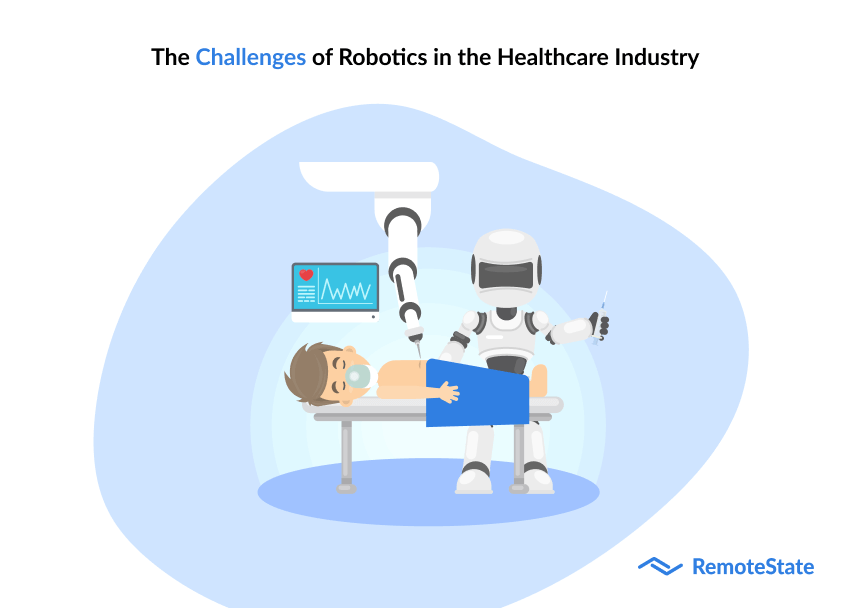
Cost
One of the primary challenges of robotics in healthcare is the cost. Robots can be expensive to purchase and maintain, and healthcare organizations may need to invest in specialized training to operate them. This can be a barrier to adoption, particularly for smaller healthcare providers with limited budgets.
Regulatory Issues
Another challenge of robotics in healthcare is regulatory issues. As robots become more integrated into healthcare, there will be a need for regulatory frameworks to ensure that they are safe and effective. This can be a complex process, as different countries may have different regulatory requirements.
Ethical Considerations
The use of robots in healthcare also raises ethical considerations. For example, there may be concerns about the use of robots for end-of-life care or the use of robots in situations where human interaction is essential. It will be important for healthcare organizations to carefully consider the ethical implications of using robots in different contexts.
Technical Limitations
Finally, there are technical limitations to consider when using robots in healthcare. Robots may not be able to perform certain tasks as effectively as human doctors, and there may be limitations in terms of the range of movements and actions that robots can perform.
Opportunities for Robotics in the Healthcare Industry
Telemedicine
One area where robotics in healthcare has significant potential is telemedicine. Robots can be used to remotely monitor patients, perform diagnostics, and deliver treatments, reducing the need for patients to travel to healthcare facilities. This can be particularly beneficial for patients in rural or remote areas, or for patients with mobility issues.
Surgical Assistance
Robots can also be used to assist in surgeries, providing doctors with greater precision and control during procedures. This can lead to better outcomes for patients, and can also reduce the risk of complications during surgery.
Elder Care
Robots can be used to provide assistance and support to elderly patients, helping them to maintain their independence and quality of life. For example, robots can be used to remind patients to take their medications.
Rehabilitation
Robots can also be used to assist in the rehabilitation process for patients who have experienced injury or illness. For example, robots can be used to help patients regain mobility after a stroke or spinal cord injury. By providing patients with targeted exercises and feedback, robots can help to speed up the recovery process and improve patient outcomes.
Data Analysis
Finally, using robotics in healthcare can also lead to improvements in data analysis. Robots can be used to collect and analyze large amounts of patient data, identifying patterns and trends that may not be immediately apparent to human doctors. This can help healthcare providers to develop more effective treatment plans and improve patient outcomes.
Conclusion
The future of robotics in healthcare is bright, with significant potential to improve patient outcomes and enhance the efficiency of healthcare delivery. While there are certainly challenges to consider, such as cost and regulatory issues, the benefits of robotics in healthcare are clear. From improving diagnoses and treatments to enhancing patient care and providing support for elderly patients, the possibilities are endless.
Embracing the Future of Healthcare: How Robotics is Enhancing Diagnostics and Treatment!
Remotestate can play a crucial role in advancing the use of robotics in healthcare. By developing software solutions that enable the integration of robotics into existing healthcare systems, Remotestate can help to ensure that the benefits of robotics in healthcare are accessible to patients and healthcare providers alike.
Remotestate can work with healthcare providers to develop custom software solutions that meet their specific needs, whether that be integrating robots into existing electronic health records systems, developing algorithms for robotic data analysis, or creating user-friendly interfaces for robotic rehabilitation tools.
In addition to developing software solutions, Remotestate can also provide ongoing support and maintenance for robotic systems, ensuring that they continue to operate at optimal levels and meet regulatory standards.
By partnering with Remotestate, healthcare providers can take advantage of the benefits of robotics in healthcare, from improving patient outcomes and enhancing diagnostic accuracy to increasing efficiency and reducing costs.
The future of healthcare is here, and Remotestate is ready to help healthcare providers embrace it.
FAQs
Will robots replace human doctors and nurses?
No, robots are not intended to replace human doctors and nurses. Instead, they are designed to assist healthcare professionals and enhance the care that they provide.
Are robots safe to use in healthcare?
Yes, robots that are used in healthcare are subject to rigorous safety standards and testing to ensure that they are safe for patients and healthcare professionals.
Will the use of robotics in healthcare lead to job losses for healthcare professionals?
While the use of robotics in healthcare may change the nature of some healthcare jobs, it is unlikely to lead to significant job losses. Instead, it will likely lead to new job opportunities in areas such as robotics maintenance and programming.
What are the ethical considerations of using robots in healthcare?
Some of the ethical considerations of using robots in healthcare include issues around privacy and patient autonomy, as well as concerns about the use of robots for end-of-life care.
What are some of the technical limitations of using robots in healthcare?
Some of the technical limitations of using robots in healthcare include limitations in terms of the range of movement and dexterity, as well as limitations in terms of the ability to interpret and respond to non-verbal cues from patients.
How can healthcare providers ensure that they are using robots ethically and responsibly?
Healthcare providers can ensure that they are using robots ethically and responsibly by carefully considering the ethical implications of using robots in different contexts, and by developing clear guidelines and protocols for the use of robots in healthcare. Additionally, healthcare providers can involve patients and their families in decision-making processes around using robots in healthcare.
Publication Date
2023-04-10
Category
Healthcare
Author Name
Rahul Agrawal
